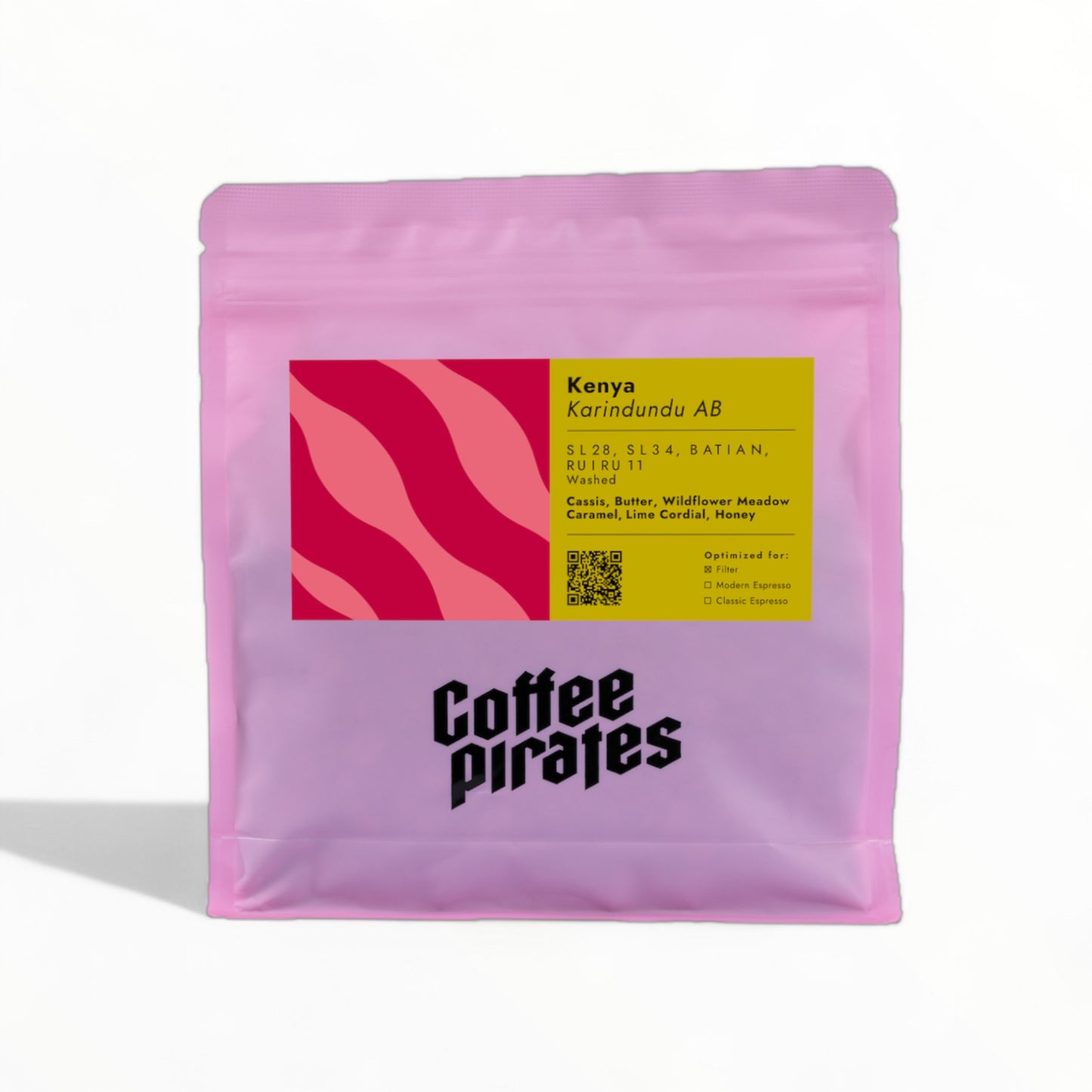1
/
of
1
Kenya Karindundu
Kenya Karindundu
No reviews
Cassis • Butter • Wildflower Meadow • Caramel • Lime Cordial • Honey
Regular price
€16,90
Regular price
Sale price
€16,90
Unit price
/
per
Taxes included.
Shipping calculated at checkout.





Couldn't load pickup availability
How Much & How Often
How Much & How Often
Not sure how much coffee you need?
| Cups a week | 250g bag |
| 1-4 | 1 bag a month |
| 5-8 | 2 bags a month |
| 9-12 | 3 bags a month |
| 13-16 | 4 bags a month |
1 cup of coffee = a 240 ml serving based on a 1:16 brew ratio
For example, if your brew ratio is 1 to 16 (often expressed 1:16, or 1/16), then for every one part coffee, you use 16 parts water. In other words, to prepare 1 cup of brewed coffee you would use 15g of ground coffee and 240 ml of water.
Shipping & Delivery
Shipping & Delivery
We ship daily from Monday to Friday from our locations in Vienna. The minimum order value is €20.
Deliveries in Austria
- 2-4 business days
- Free at €35
- €4.50 shipping for orders below €35
Deliveries to Germany
- 2-7 business days
- Free at €70
- €9.90 shipping for orders below €70
Deliveries to countries within the EU, other than Germany
- 3-10 business days
- Free at €70
- €14.90 shipping for orders below €70
Ethically Sourced, Fairly Paid
Ethically Sourced, Fairly Paid
We work closely with coffee farmers and reliable partners to ensure fair wages and transparent relationships.
Behind the Cup
Behind the Cup
The Karindundu factory is located in the lowland region of Mt. Kenya, 1 km from the town of Karatina in Kenya’s Nyeri district. There are a total of 513 active members (349 male, 164 female) contributing to annual production, each with an average of 300 trees and 0.5 acres. Farmers grow macadamia, banana, maize, and beans near their coffee. After harvesting their ripe cherries, farmers deliver them to Karindundu where they undergo a traditional washed process. Coffee is de-pulped, fermented overnight, washed, and then placed on raised beds where it dries to a stable level. Karindundu helps to support the contributing farmers by advising the use of farm manure, pruning, and applying fertilizer. They also maintain a demonstration plot where these methods can be seen and better understood.
Coffee in Kenya is typically traceable down to the factory, or mill level: Most farmers own between 1/8 to 1/4 of a hectare, and often grow crops other than coffee as well, which means they rely on a central processing unit for sale and processing of their coffee. Producers deliver in cherry form to a factory, where the cooperative will sort, weigh, and issue payment for the delivery. The coffee is then blended with the rest of the day’s deliveries and goes on to be processed. Because of this system, which serves many hundreds to several thoughts of smallholder farmers per factory, there is limited traceability down to the individual producers whose coffee comprises the lots.
Coffee in Kenya is typically traceable down to the factory, or mill level: Most farmers own between 1/8 to 1/4 of a hectare, and often grow crops other than coffee as well, which means they rely on a central processing unit for sale and processing of their coffee. Producers deliver in cherry form to a factory, where the cooperative will sort, weigh, and issue payment for the delivery. The coffee is then blended with the rest of the day’s deliveries and goes on to be processed. Because of this system, which serves many hundreds to several thoughts of smallholder farmers per factory, there is limited traceability down to the individual producers whose coffee comprises the lots.
Best prepared with






